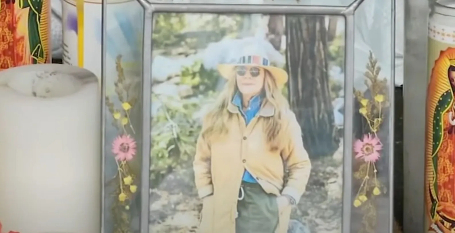When police responded to reports of a shooting at the Mag.Pi clothing store in San Bernadino, they found the shop-owner, Laura Ann Carleton had been shot and killed.
Her killer had apparently fled on foot. When he was confronted by police, he was still holding the weapon. He was shot and killed by the police.
Local media are reporting that the man that had killed Carleton had made disparaging remarks about a rainbow flag that stood outside the store. When Carleton tried to prevent the man from tearing down the rainbow flag, he shot her.
The murder of Carleton is not an isolated incident. Businesses and organisations across the US are increasingly facing threats of violence for flying rainbow flags or publicly displaying their support for LGBTQ people.
What's life like for LGBTQ people in the United States?
What's life like for LGBTQ people in the United States? Let's take a look at some of the key equality indicators.
Is it legal to be gay in the US?
One of the complexities of the experience of LGBTQ people in the United States is that much of the legislative framework for the country varies on a state-by-state basis.
It was only as a result of a Supreme Court decision in 2003 that same-sex sexual activity has been legal in all US states.
There is still some variation in the age of consent – it varies from 16 to 18, and some states have different ages of consent for same-sex sexual relations.
Is there anti-discrimination legislation in place to protect LGBTQ people in the US?
Yes. Federal anti-discrimination protections have been extended to all employees across the country. This now means that LGBTQ employees can’t be fired for revealing their sexuality.
Is there marriage equality in the US?
It was a 2015 Supreme Court decision that requires all states to licence and recognise same-sex marriages.
What’s life like for LGBTQ people who live in the US?
There have been huge advancements for LGBTQ people, with some landmark Supreme Court cases that have made symbolic and practical steps forward in achieving equality.
The modern LGBTQ Pride movement was born in the US in 1970 – marking the anniversary of the Stonewall riots in New York City in 1969. The month of June is now designated as Pride Month across the US, with a huge number of parades and events held in communities of all sizes.
In many ways, the US could be described as one of the best countries in the world to be gay, however numerous problems still exist.
The attack against the gay club in Orlando in 2016 was obviously an extreme event, but 49 people were killed and 53 people were injured in what should have been a safe space.
LGBTQ teen homelessness and rates of self-harm and suicide are disturbingly high – particularly for people from non-white ethnicities.
Trans people are routinely vilified by conservative politicians. Black Trans Women are particularly vulnerable to violence and abuse.
There appears to be a rising tide of homophobia, fuelled by right-wing politicians and media outlets that see it as a populist move.

